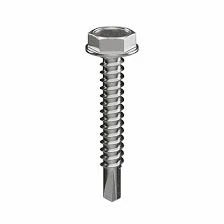Expansion Bolts for Structural Steel – High-Performance Fastening Solutions
Expansion Bolts for Structural Steel An Overview
Expansion bolts are crucial fasteners used in various applications, especially in structural steel frameworks. They provide a reliable and robust method for securing fixtures, equipment, and other components to concrete and masonry surfaces. This article delves into the various aspects of expansion bolts, including their types, applications, and installation processes, focusing on their role in structural steel.
Types of Expansion Bolts
There are several types of expansion bolts suitable for structural steel applications, each designed to accommodate different requirements. The most common types include
1. Wedge Anchors These bolts are specially designed for heavy-duty applications. They feature a conical end that expands when the bolt is tightened, creating a secure grip within the base material. Wedge anchors are ideal for use in concrete, offering superior holding power.
2. Sleeve Anchors Sleeve anchors consist of a bolt with a sleeve that expands when tightened, allowing for a strong hold in a variety of materials, including concrete, brick, and block. They are versatile and suitable for moderate load applications.
3. Drop-In Anchors Ideal for overhead applications, drop-in anchors allow for easy installation and can be used in solid concrete. These anchors are inserted into a pre-drilled hole, with the expansion occurring as a setting tool is used to compress the anchor.
4. Concrete Screws While not traditional expansion bolts, these screws are designed to cut threads directly into concrete for a strong hold. They are simple to install and ideal for light to medium loads.
Applications
expansion bolts for structural steel

Expansion bolts are used in a wide range of applications. In structural steel projects, they are often utilized to attach steel beams, columns, and other structural members to concrete foundations. They are also essential in mounting equipment, such as HVAC units, machinery, and safety railings. Due to their strength and reliability, expansion bolts are favored in both commercial and industrial settings.
Installation Process
Proper installation of expansion bolts is critical to ensuring their effectiveness. The process generally involves
1. Drilling a Hole A precise hole is drilled into the concrete or masonry at the desired depth and diameter, according to the specifications of the expansion bolt.
2. Inserting the Bolt The expansion bolt is inserted into the prepared hole. The type of bolt will dictate the method of expansion—whether by tightening the nut or using a specific tool.
3. Tightening The bolt is then tightened, causing it to expand and create a secure fit within the base material. It’s essential to follow torque specifications to avoid over-tightening, which can weaken the bond.
4. Verification Finally, it’s crucial to inspect the installation to ensure that it meets safety standards and load requirements.
Conclusion
In conclusion, expansion bolts are a vital component in the construction and maintenance of structural steel frameworks. By understanding the various types, applications, and proper installation techniques, engineers and builders can leverage the full potential of these fasteners to enhance the safety and durability of their projects. Whether in commercial buildings or industrial applications, the effectiveness of expansion bolts cannot be overstated.
-
Weatherproof Plastic Expansion Anchors for OutdoorЖаңылыктарJun.06,2025
-
Sustainability in the Supply Chain: Eco-Friendly TEK Screws ProductionЖаңылыктарJun.06,2025
-
Load-Bearing Capacity of External Insulation FixingsЖаңылыктарJun.06,2025
-
Double Head Bolts: Enhancing Efficiency in Industrial MachineryЖаңылыктарJun.06,2025
-
Corrosion Resistance in Chipboard Screws: Coatings for Wholesale DurabilityЖаңылыктарJun.06,2025
-
Butterfly Toggle Bolts : Enhancing Structural ResilienceЖаңылыктарJun.06,2025
